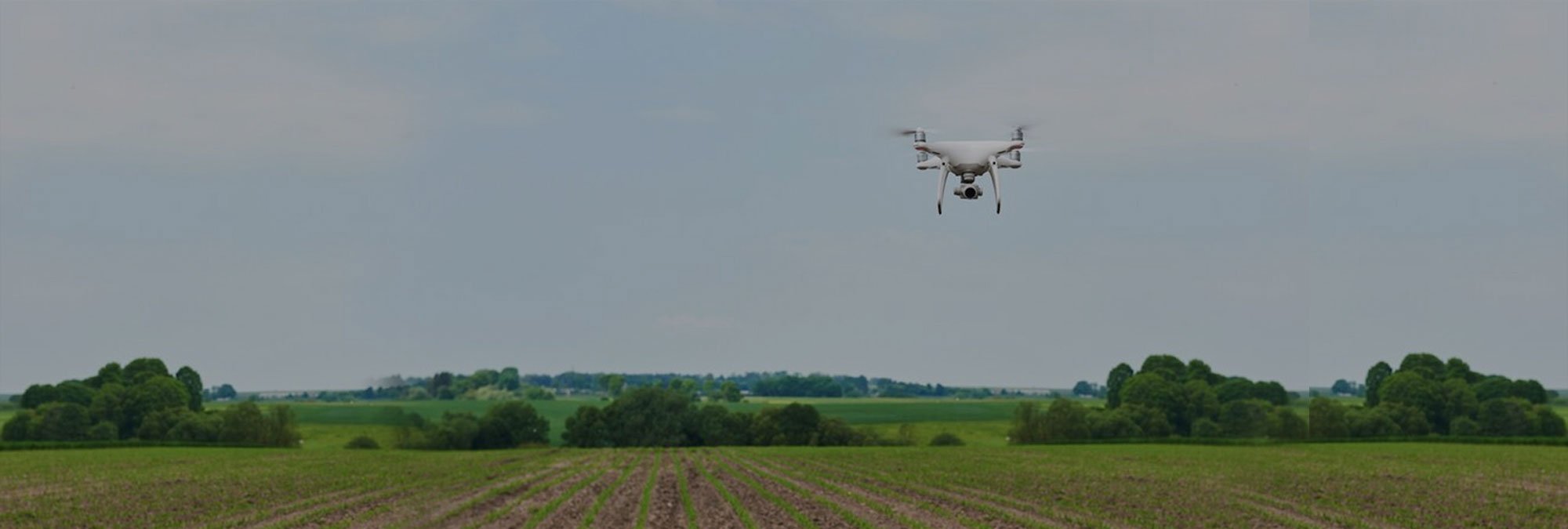Precision farming, also known as precision agriculture, is a farming management concept that uses technology to ensure crops and soil receive exactly what they need for optimum health and productivity.
One of the key technologies driving precision farming is agricultural drones. These unmanned aerial vehicles (UAVs) are equipped with various sensors and imaging devices that allow farmers to gather data about their crops and make informed decisions about how to manage them.
In this article, we will explore how agricultural drones are changing the game in precision farming.
Benefits of Precision Farming
1. Increased Crop Yields:
Precision farming techniques, enabled by agricultural drones, can help farmers identify areas of their fields that are underperforming and take corrective action to improve yields.
2. Reduced Environmental Impact:
By applying inputs such as fertilisers and pesticides only where they are needed, precision farming can help reduce the environmental impact of agriculture, including water pollution and soil erosion.
3. Efficient Use of Resources:
Precision farming allows farmers to use resources such as water, fertilisers, and pesticides more efficiently, reducing waste and lowering costs.
4. Cost Savings:
While the initial investment in precision farming technologies such as agricultural drones can be significant, the long-term cost savings can be substantial, especially for larger farms.
Role of Agricultural Drones in Precision Farming
Agricultural drones play a crucial role in precision farming by providing farmers with detailed, up-to-date information about their crops and fields. These drones are equipped with a variety of sensors and imaging technology that allow them to collect data on crop health, soil conditions, and more.
Types of Agricultural Drones
There are several types of agricultural drones available, each with its own set of features and capabilities. Fixed-wing drones are ideal for covering large areas of farmland quickly, while multi-rotor drones are more manoeuvrable and can hover in place for detailed inspections.
Hybrid drones combine the best features of both types, offering both long-range flight and manoeuvrability.
Sensors Used in Agricultural Drones
Agricultural drones are equipped with a variety of sensors that allow them to collect data about crops and soil. Multispectral cameras, for example, can capture images in multiple wavelengths of light, allowing farmers to assess crop health. Thermal imaging cameras can detect temperature differences in the soil, which can indicate areas of moisture stress.
Applications of Agricultural Drones in Precision Farming
Agricultural drones have a wide range of applications in precision farming, including:
- Crop health monitoring: Drones can provide farmers with real-time data on crop health, allowing them to identify issues such as nutrient deficiencies or pest infestations early.
- Soil analysis and mapping: Drones can assess soil health and create detailed maps of fields, helping farmers make informed decisions about fertilisation and irrigation.
- Irrigation management: Drones can monitor soil moisture levels and apply water only where it is needed, reducing water waste.
- Pest and disease detection: Drones can monitor fields for signs of pests or disease, allowing farmers to take proactive measures to protect their crops.
Challenges and Limitations
Despite their many benefits, agricultural drones face several challenges, including regulatory issues, the cost of drones and equipment, and the need for efficient data processing and analysis. Additionally, the use of agricultural drones raises privacy concerns, as they can collect sensitive information about crops and land use.
Case Studies
There are many examples of successful implementation of agricultural drones in precision farming. For example, a farmer in Australia used drones to monitor the health of his vineyard, resulting in a 30% increase in yield.
Another farmer in the United States used drones to detect a pest infestation early, saving his crops from significant damage.
Future Trends
The future of agricultural drones in precision farming looks promising, with advancements in technology continuing to improve their capabilities. Future trends in agricultural drone technology include the use of artificial intelligence (AI) to analyse drone data and provide farmers with actionable insights.
Other potential future applications of drones in precision farming include the use of drones for crop spraying, planting, and even harvesting.
Final Thoughts
Agricultural drones are changing the game in precision farming, enabling farmers to gather detailed, up-to-date information about their crops and fields. By understanding the benefits and applications of agricultural drones, farmers can make informed decisions about how to integrate this technology into their operations.
With the right approach, agricultural drones can help farmers improve yields, reduce waste, and lower costs, leading to a more sustainable and profitable future for agriculture.
Precision Ag Services is a local family run business based within the Lockyer Valley and serves South East Queensland and beyond. Depending on what is needed Precision Ag Services is here to help you.
Please fill out our enquiry form for more information or to make a booking.


